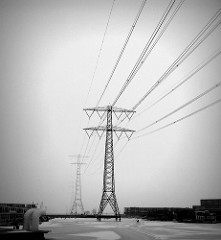Cultural Studies Interrogated
July 26, 2018
Cultural Studies…questions the taken for granted.
It sloughs the skin of normalcy, of common sense assumptions.
It unwraps the defensive layers protecting our security and entitlement,
peeling them back to affirm a space, a place
that does not repress,
limit,
inhibit,
subsume,
prescribe,
undermine,
subordinate,
suffocate,
silence,
choke,
stifle,
any
1.
Cultural Studies…disinters the instrumental from the instrumentalized,
the trendy from the terminal,
the conjunctural from the historical,
the implied from the expressed,
the shadow from the shape.
Cultural Studies…turns nouns into verbs, ideas into action.
It problematizes: elevates the art of taking issue
to an academic level;
digs into the social construction of culture,
how it benefits a particular people
at a particular time.
Cultural Studies…examines “how cultures work,
are contested,
divide and cohere, or
how transpersonal historical structures consort with
human activity to produce social and political change.”[1]
It is a study of those whose struggles make (or don’t make) history.
Cultural Studies…interrogates hegemony;
challenges one social group’s control over another,
exposes assumptions of superiority,
as Antonio Gramsci critiqued
the dominance of capitalism
in his day.[2]
Cultural Studies…queries how capitalist economies of profit
pressure, influence, dictate, divide, stratify,
human behaviour,
social structures,
policy.
It confronts the economy of power
and the power of the
economy.
“…for though hegemony is ethical-political,
it must also be economic,
must necessarily be based on the
decisive nucleus of economic activity.”[3]
Cultural Studies…lives outside the boxes
that define and determine in and out.
It calls box makers to analyze and account
for their allocation of privilege and merit.
Cultural Studies…complicates the duality, the binary,
of black/white, male/female, settler/indigenous, enslaved/free, conservative/liberal, post/colonial.
It questions the construction, the origin, the utility of these dyads;
whose experiences they reflect,
whose purposes they serve,
whose rules they follow.
Cultural Studies…invests in the dynamics of interaction,
and how these associations affect our perception of self,
and others;
how our intercorporeality,
our intimate relationships “with and in” the world, shape us;[4]
… considers how our Skin Ego bears witness to, testifies
against the desomatisation of the psyche.[5]
How our bodies are testimonies to lived experiences.
Cultural Studies…looks at how we position ourselves as a self among
others,
in our news, our religions, our education systems, our governments,
in our reconciliation commissions and inquiries,
in our museums, and art galleries,
in our monuments, billboards,
statu(t)es, and
stories.
Cultural Studies…challenges the Canadian Museum for Human Rights
to consider a version of hope
that does not rely on the comfort of “positive stories” or an “optimistic tone”
but where the future is opened to change through
critical and unsettling engagements with
present and ongoing histories
of colonial violence
in Canada.[6]
Cultural Studies…invites Canadians to watch themselves cringe
when they hear words such as “genocide,” betrayal,” and “abuse”;
“this image of colonizer as abusive perpetrator so at odds
with the peacemaker myth.”[7]
Cultural Studies…complicates the conscience of academia.
It reveals covert assumptions, agendas, preoccupations, presuppositions,
by exposing, querying, reframing, repositioning, reconfiguring, extending, transposing
realities, histories, meanings, conclusions,
language, terminology,
policy, identity,
polity.
Cultural Studies…attends to dual ambitions, “where
the ‘organic intellectual’ must work on two fronts at one and the same
time”; at once engaged at the forefront of intellectual work
and also with the political project.[8]
Cultural Studies is…an indictment of public education as colonizer,
perpetrator and perpetuator of cultural values and norms,
through curriculum, textbooks and literature,
these stories we tell ourselves
and our children.
Cultural Studies is…a challenge to break down the complicated relationships between
colonial knowledge,
ignorance,
denial, and
colonial beliefs.[9]
Cultural Studies…exposes systematized oppression
in our attitudes, approaches, frameworks, justifications,
in politics, academia, economics, leisure, media;
in how we work, travel, love, dream, protest;
in how we spend our days, our money,
our natural resources,
our futures.
Cultural Studies is…naming and owning
my identifiers,
my signifiers,
my markers,
of success and failure,
of hope and despair,
of truth and myth.
Cultural Studies is…accepting the historical weight and future implications of my identity.
It is taking responsibility for how my life
impacts others.
References
[1] Eric Lott, Love and Theft: Blackface Minstrelsy & the American Working Class
(New York: Oxford University Press, 1993), 11.
[2] Andrew Edgar and Peter Sedgwick, eds. Cultural Theory: The Key Concepts(New
York: Routledge, 2008), 155.
[3] Antonio Gramsci, “Hegemony, Intellectual and the State.” in Cultural Theory and
Popular Culture: A Reader, ed. John Storey (New York: Routledge, 2009), 76.
[4] Sara Ahmed and Jackie Stacey, eds. Thinking Through the Skin(New York:
Routledge, 2001), 5.
[5] Ahmed and Stacey, Thinking Through the Skin, 6.
[6] Angela Failler, “Hope Without Consolation: Prospects for Critical Learning at the
Canadian Museum for Human Rights,” Review of Education, Pedagogy, and Cultural Studies37, no. 2-3 (2015): 228.
[7] Paulette Regan, Unsettling the Settler Within: Indian Residential Schools, Truth
Telling, and Reconciliation in Canada(Vancouver: UBC Press, 2010), 114.
[8] Stuart Hall, “Cultural Studies and Its Theoretical Legacy.” in Stuart Hall: Critical
Dialogues in Cultural Studies, eds. David Morley and Kuan-Hsing Chen (New York: Routledge, 1996), 268.
[9] Jennifer Hardwick, "Dismantling Narratives: Settler Ignorance, Indigenous Literature
and the Development of a Decolonizing Discourse," Topia33 (2015): 115.

